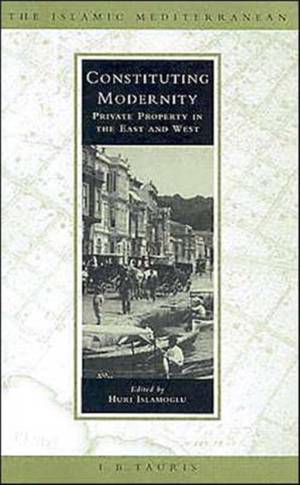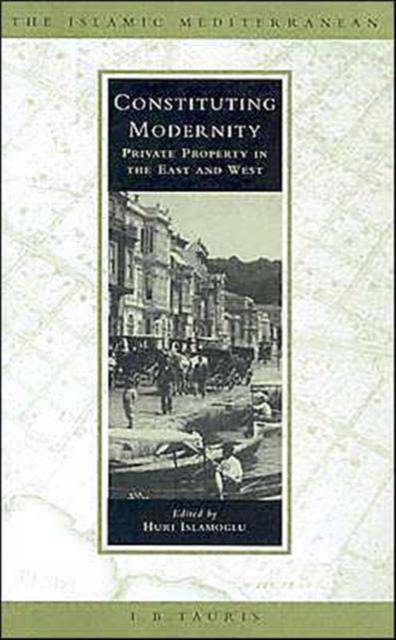
Je cadeautjes zeker op tijd in huis hebben voor de feestdagen? Kom langs in onze winkels en vind het perfecte geschenk!
- Afhalen na 1 uur in een winkel met voorraad
- Gratis thuislevering in België vanaf € 30
- Ruim aanbod met 7 miljoen producten
Je cadeautjes zeker op tijd in huis hebben voor de feestdagen? Kom langs in onze winkels en vind het perfecte geschenk!
- Afhalen na 1 uur in een winkel met voorraad
- Gratis thuislevering in België vanaf € 30
- Ruim aanbod met 7 miljoen producten
Zoeken
Constituting Modernity
Private Property in the East and West
€ 296,95
+ 593 punten
Omschrijving
This text originated from a critique of a liberal understanding of property relation as one between a person and a "thing". States are perceived to be fundamental obstacles on the way to an individual's appropriation of the "thing". State intervention is often considered to be a reason for a presumed absence of private property in non-European contexts. The research presented here contests these assumptions from different perspectives, both in a European and non-European context. As multidisciplinary as it is wide-ranging, the work ranges from practices of the 19th-century Otoman administrative government in the constitution of private property rights to the practice of cadastral mapping in British India. These essays, prepared in collaboration as part of a unified research programme, cover Ottoman and British land laws, property rights in the British colonies, and the notion of property as a contested domain and a site of power relations in 19th-century China.
Specificaties
Betrokkenen
- Uitgeverij:
Inhoud
- Aantal bladzijden:
- 335
- Taal:
- Engels
- Reeks:
- Reeksnummer:
- nr. 5
Eigenschappen
- Productcode (EAN):
- 9781860649967
- Verschijningsdatum:
- 26/03/2004
- Uitvoering:
- Hardcover
- Formaat:
- Genaaid
- Afmetingen:
- 144 mm x 223 mm
- Gewicht:
- 385 g

Alleen bij Standaard Boekhandel
+ 593 punten op je klantenkaart van Standaard Boekhandel
Beoordelingen
We publiceren alleen reviews die voldoen aan de voorwaarden voor reviews. Bekijk onze voorwaarden voor reviews.








